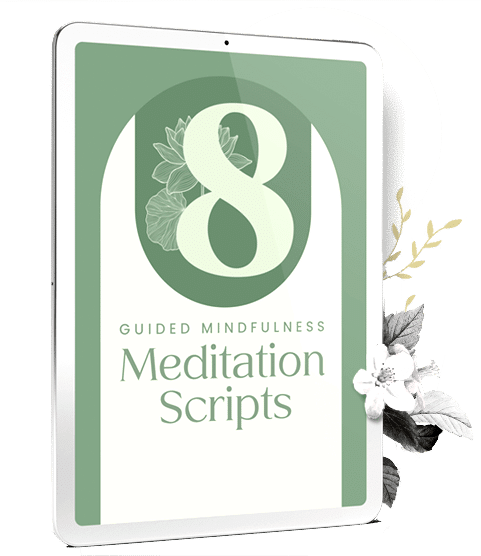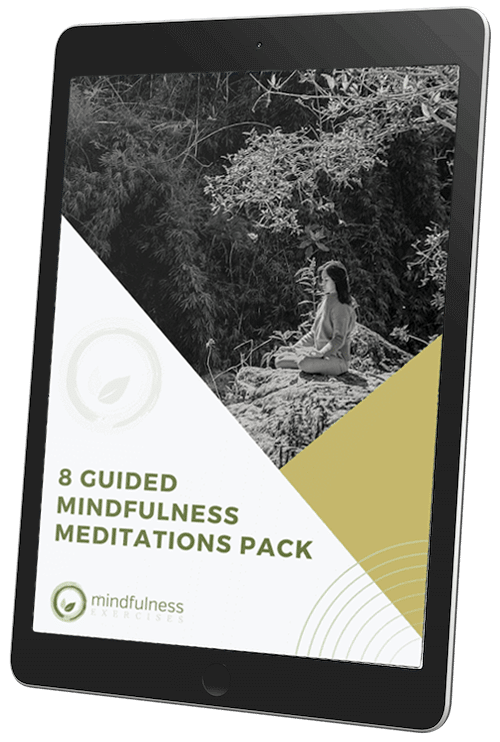Sam Harris is a neuroscientist and philosopher. In this guided meditation with Sam Harris, he will help us improve our mindfulness practice in life.
Here author, philosopher and neuroscientist Sam Harris guides meditators to look for the self.
“The reality of your life is always now. And to realize this, we will see, is liberating. In fact, I think there is nothing more important to understand if you want to be happy in this world.”
“There is nothing passive about mindfulness. One might even say that it expresses a specific kind of passion—a passion for discerning what is subjectively real in every moment. It is a mode of cognition that is, above all, undistracted, accepting, and (ultimately) nonconceptual. Being mindful is not a matter of thinking more clearly about experience; it is the act of experiencing more clearly, including the arising of thoughts themselves. Mindfulness is a vivid awareness of whatever is appearing in one’s mind or body—thoughts, sensations, moods—without grasping at the pleasant or recoiling from the unpleasant.”
~Quotes by Sam Harris from Waking Up: A Guide To Spirituality Without Religion
________________________________________
Sir, what is religion? Actually, what is religion? First of all, to find out what is religion we must negate what it is not. What it is not; then it is. It’s like seeing what is not love. Love is not hate, love is not jealousy, love is not ambition, love is not violence. When you negate all that, the other is, which is compassion. In the same way if you negate what is not religion then you find out what is true religion; that is, what is the truly religious mind.
Belief is not religion, and the authority which the churches, the organized religions assume, is not religion. In that there is all the sense of obedience, conformity, acceptance, the hierarchical approach to life. The division between the Protestant, the Catholic, the Hindu, the Moslem, that’s not religion. When you negate all that, which means you are no longer a Hindu, no longer a Catholic, no longer belonging to any sectarian outlook, then your mind questions, asks what is true religion? This is free from their ritual, without their masters, without their Saviour; all that is not religion. When the mind discards that, intelligently, because it has seen that it’s not religion, then it can ask what is religion.
Religion is not what I think, but religion is the sense of comprehension of the totality of existence, in which there is no division between you and me. Then if there is that quality of goodness which is virtue, real virtue not the phony virtue of society, but real virtue, then the mind can go beyond and find out, through meditation, through a deep, quiet silence, if there is such a thing as reality.
Therefore a religious mind is a mind that is constantly aware, sensitive, attentive, so that it goes beyond itself into a dimension where there is no time at all.
~Jiddu Krishnamurti
To donate to Sam Harris directly, visit http://www.samharris.org/donate
Guided Meditation with Sam Harris
Sam Harris is a neuroscientist from the United States. He’s an accomplished author, a frequent blogger, and hosts a regular podcast. Harris was born in Los Angeles, and was raised in a secular household. He attended Stanford University and majored in English. After having various spiritual experiences while taking the drug MDMA, Harris opted to withdraw from school and pursue a spiritual path abroad. Ending up in India and Nepal, Harris studied both Hindu and Buddhist traditions for a number of years. He later returned to Stanford, completed a degree in philosophy, and eventually went on to receive a PhD in cognitive neuroscience from UCLA.
Spirituality without religion
Harris is a vocal opponent of most forms of organized religion. He’s often lumped together with other fervent atheists, including Daniel Dennett and Richard Dawkins. His first book, The End of Faith, was published in 2004. He approaches morality from a scientific standpoint, as outlined in his 2010 book, The Moral Landscape. Most recently, he’s written Waking Up: A Guide to Spirituality Without Religion.
When it comes to being on a spiritual path, Harris believes that religiosity can actually impede spiritual revelation. At the same time, he claims that it often detracts from human experience, and amounts to an intellectual waste of time.
The importance of meditation
According to Harris, there’s no need to uphold some kind of sharp, polarized worldview, wherein one has to either be a positivist and rationalist on the one hand, or a proponent of religious dogmatism on the other. Instead, Harris advocates a “middle way” between the two: one which include both science and spirituality, while leaving religiosity out of the picture. According to Harris, spirituality is in no way incompatible with science. He claims that some of the original, inspirational mind states which inspired some of the world’s religions–such as compassion, devotion, and so on–are valuable, but have been corrupted by religious doctrine.
To donate to Sam Harris directly, visit http://www.samharris.org/donate
Sam Harris – Guided Meditation
Sam Harris is a neuroscientist from the United States. He’s an accomplished author, a frequent blogger, and hosts a regular podcast. Harris was born in Los Angeles, and was raised in a secular household. He attended Stanford University and majored in English. After having various spiritual experiences while taking the drug MDMA, Harris opted to withdraw from school and pursue a spiritual path abroad. Ending up in India and Nepal, Harris studied both Hindu and Buddhist traditions for a number of years. He later returned to Stanford, completed a degree in philosophy, and eventually went on to receive a PhD in cognitive neuroscience from UCLA.
Spirituality without religion
Harris is a vocal opponent of most forms of organized religion. He’s often lumped together with other fervent atheists, including Daniel Dennett and Richard Dawkins. His first book, The End of Faith, was published in 2004. He approaches morality from a scientific standpoint, as outlined in his 2010 book, The Moral Landscape. Most recently, he’s written Waking Up: A Guide to Spirituality Without Religion.
When it comes to being on a spiritual path, Harris believes that religiosity can actually impede spiritual revelation. At the same time, he claims that it often detracts from human experience, and amounts to an intellectual waste of time.
The importance of meditation
According to Harris, there’s no need to uphold some kind of sharp, polarized worldview, wherein one has to either be a positivist and rationalist on the one hand, or a proponent of religious dogmatism on the other. Instead, Harris advocates a “middle way” between the two: one which include both science and spirituality, while leaving religiosity out of the picture. According to Harris, spirituality is in no way incompatible with science. He claims that some of the original, inspirational mind states which inspired some of the world’s religions–such as compassion, devotion, and so on–are valuable, but have been corrupted by religious doctrine.







